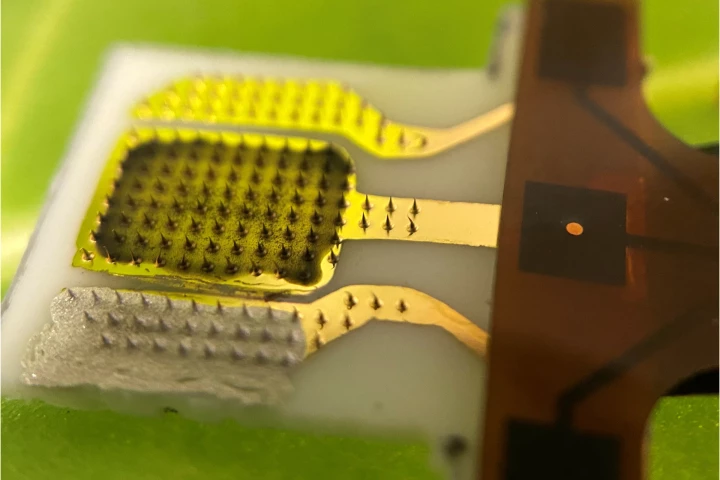Iowa State University
-
The sooner a farmer knows that their crops are suffering, the faster they can take action to prevent major crop failure. A new plant-leaf-poking sensor could soon help them do so, by sending an alert as soon as the plant gets stressed.
-
Copper is known for its ability to kill microbes on contact, which is why it's often professionally coated onto commonly touched items. A copper nanowire spray may allow everyday folks to give existing surfaces the same treatment, using a spray can.
-
New research has delved into the relationship between exercise and depression and turned up some early but valuable insights, suggesting that a single workout before a weekly therapy session can amplify its positive effects.
-
New research has found a long bout of moderate exercise following COVID-19 or influenza vaccination can amplify the body’s immune response. The study showed 90 minutes of exercise immediately after vaccination increased antibody responses weeks later.
-
We are seeing some exciting research advances that could help reveal Parkinson's in its ealy stages. Scientists have now produced another by demonstrating how a skin biopsy can be used to identify the disease with a high degree of accuracy.
-
Adding “two-faced” nanoparticles could improve paints and coatings. With one face that attracts water and another that repels it, the particles arranged themselves in a flat layer on a painted surface and could make for paint with unusual properties.
-
Graphene, the electrically-conductive "wonder material" made up of a one-atom-thick sheet of linked carbon atoms, already has many uses. It now has another, however, as the active ingredient in a sensor that detects food spoilage.
-
Finding a person's fingerprints at a crime scene isn't always enough to convict them, as they can claim that those prints were left before the crime took place. That may be about to change, as scientists have devised a method of dating fingerprints.
-
If you suffer from depression, you've likely been advised to get plenty of exercise. Scientists have now gained a fresh understanding of how being active helps alleviate the condition, and they believe that their findings could lead to better treatments.
-
Many animals adjust to changes in climate by shifting behaviors such as hibernation, reproduction and migration in order to optimize the continuation of the species. Unfortunately, a recent meta analysis of over 10,000 studies suggests these adaptations simply aren't happening quickly enough.
-
The placenta may be one of the least understood organs, but it’s important to study its effects on the health of a developing fetus. Researchers at Iowa State University have used microfluidic models of the organ, a placenta-on-a-chip, to see if, and how much, caffeine can cross from mother to baby.
-
Toxic algae blooms can be nasty, killing fish, other wildlife and sometimes even people. One of the main causes of such blooms is excessive amounts of fertilizer running off of fields and into waterways. A new type of buried sensor, however, could help address that situation.
Load More











